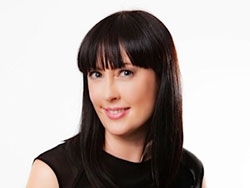Midwives have more opportunities than ever before to access their education at home, at the click of a button.
With rapid advances in technology, e-learning for midwives has become user-friendly while also enabling midwives to access education right at their fingertips, whenever and wherever they choose.
Subscribe for FREE to the HealthTimes magazine
The
Australian College of Midwives (ACM) has launched a new course on supporting women to breastfeed as part of its ever-changing and growing suite of e-learning education,
Midwives Learn.
ACM education unit midwifery advisor Ruth King says the breastfeeding course links in with ACM’s role as the governing body for the Baby Friendly Health Initiative (BFHI).
The initiative is designed to protect, promote and support breastfeeding through recognising and awarding accreditation to maternity facilities that demonstrate best practice in breastfeeding. Nationally, the program has accredited more than 70 BFHI maternity facilities.
“As part of the initiative, everyone who undertakes the BFHI assessment needs their staff to undertake breastfeeding training,” Ms King says.
“Breastfeeding is key to midwifery - it’s one of the core outcomes. We would really like all women to breastfeed their babies or have the opportunity to breastfeed - it’s obviously not appropriate for everyone.
“To facilitate that we thought it was beneficial to have an education course that provided information for midwives, mainly refreshing their knowledge.
“So, it’s not at the level of training for lactation consultants but it is at a level of providing that refresher information for midwives on breastfeeding, best techniques, World Health Organisation and Australian guidelines from the National Health and Medical Research Council (NHMRC).
“Providing consistent information in one course we hope will ensure that midwives have best practice and mothers have optimal choice and options when it comes to breastfeeding.”
With midwives playing a pivotal role in the care, information and emotional support for new mums, the eight CPD recognition point course is designed to equip midwives with the necessary knowledge and skills to assist women to begin and continue to breastfeed their babies.
The course covers current breastfeeding practices of Australian women and strategies designed to protect, promote and support breastfeeding at a national and international level, while it also identifies and reflects on factors that impact on breastfeeding decisions and practice.
It outlines the different stages of lactation, how routine hospital procedures can disrupt the normal process of attachment, the principles of positioning in the breastfeeding relationship, breastfeeding challenges and equipment, the normal progression of breastfeeding, and how to assist non-breastfeeding mums.
Midwives Learn features a range of online
continuing professional development (CPD) courses for midwives on topics such as neonatal resuscitation, epidural and spinal analgesia, continence promotion, telehealth, and alcohol and pregnancy.
ACM also recently launched another eight-hour course covering the causes, risks, prevention and treatment of dehydration.
The eight CPD recognition point course is designed to refresh midwives’ knowledge about dehydration in pregnancy and how to educate women about the prevention of dehydration.
“Dehydration is something that occurs with women during pregnancy, labour and their postnatal period and can actually impact on their pregnancy health while dehydration can also slow labour down,” Ms King says.
“In the postnatal period, if mums are dehydrated it can impact on fatigue, and if you’re fatigued then your memory is not as good and your capacity to cope is reduced.
“We thought it was a worthwhile venture to delve into and produce a course that addressed the issues of dehydration for pregnancy and postnatal women.
“It also looks a little at midwives looking after themselves while they’re working and making sure that they remember that dehydration is actually just as important for them to address - making sure they don’t become dehydrated.”
Ms King, a continuity of care midwife of six years who previously worked at Adelaide’s Women’s and Children’s Hospital, says e-learning has its many advantages and is here to stay.
“E-learning is really daunting to some people - it’s a whole new set of skills,” she says.
“It seems completely off tangent when it comes to midwifery and the delivery of midwifery practice and care but in actual fact it’s a fantastic way of engaging with the midwifery community and finding out best practice, new skills and new information, and for midwives to be able to do it in their own time.
“Universities, hospitals and the private sector have all embraced e-learning and it’s really become more prevalent,” she adds.
“It definitely doesn’t overtake the hands-on learning but it can very much be used in parallel to enhance and improve skills that we use on a day to day basis when we’re working with women.”













